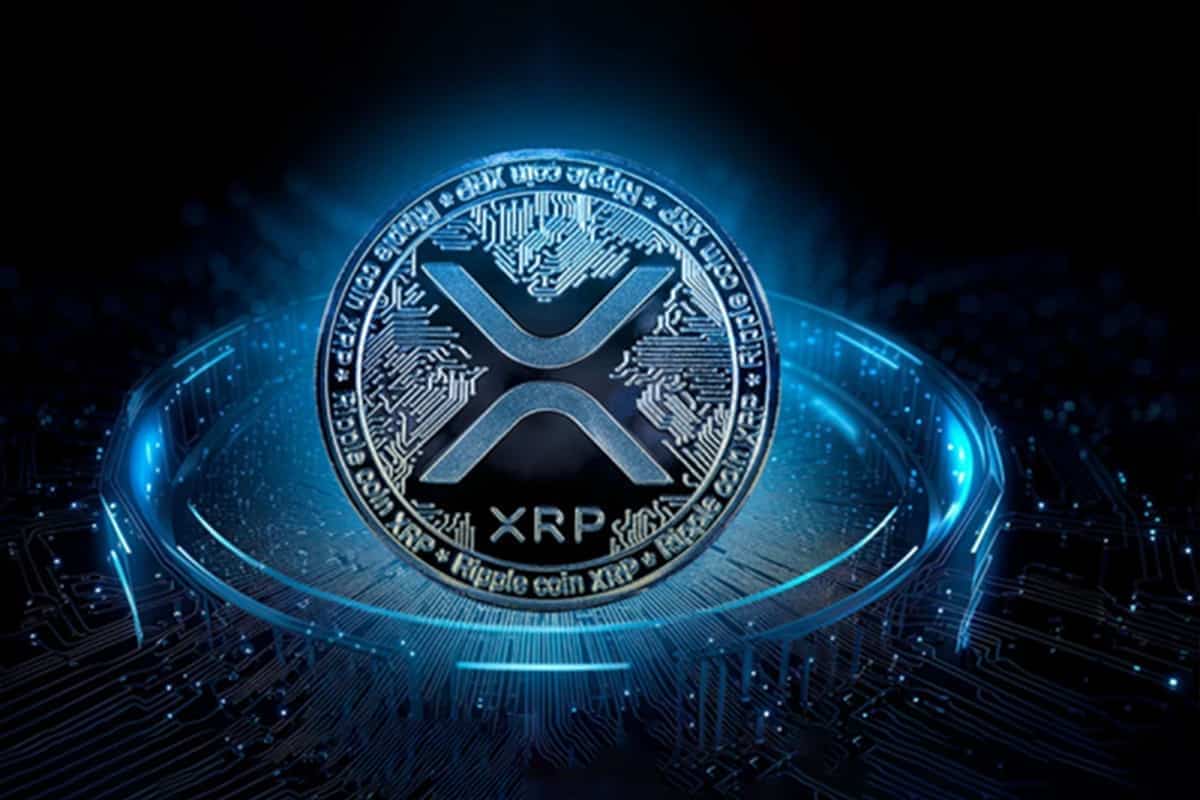Regulation
XRP Lawyer Says SEC Knows Ripple ODL Sales Are Not Investment Contracts

In a recent filing, the U.S. Securities and Exchange Commission (SEC) opposed Ripple’s motion to seal and redact evidence related to remedies briefing and documents. Moreover, the SEC urged the court to order the disclosure of Ripple’s business details from the agency’s March 22 remedies briefing.
However, Ripple had previously requested that financial reports, post-complaint XRP institutional sales details, and other sensitive information remain confidential due to the high risks to the firm. Amid the chaos, Bill Morgan, a pro-XRP advocate, underscored that the SEC alredy knows that Ripple’s On-demand Liquidity (ODL) sales aren’t investment contracts.
SEC Mentions Ripple ODL Sales In Filing
Pro-XRP lawyer Bill Morgan shared a snapshot from the SEC’s latest response. The snapshot highlighted, “The same is true for Ripple’s aged securities offering and sales information. Ripple wants to hide the extent to which it offered XRP at discriminatory prices. But the period when Ripple was offering discounts goes back to 2014 and ended in December 2020.”
It added, “Ripple has not shown how the discounts it offered four years ago or more would matter, particularly since Ripple seeks to avoid remedies by claiming it ‘has changed the way it sells XRP and changed its contracts.’” in addition, the SEC emphasized that Ripple’s current contracts are not the ones under scrutiny.
The agency further added, “Indeed, the contracts at issue are not ODL contracts—the only type of Institutional Sales contracts Ripple claims it enters into today… none of Ripple’s current contracts contain lockups. The redactions the SEC opposes thus do not reveal ‘long-term business plans of any kind.’”
Lawyer Explains SEC’s Stance On ODL Sales
Morgan elaborated on the SEC’s position, explaining, “The SEC clarifies that none of the sales to institutions with discounts were ODL contracts.” He added, “The SEC would have reviewed the ODL contracts and observed that they do not have discounts or the features referred to in the summary judgment that made institutional buyer contracts to be investment contracts according to judge Torres.”
Furthermore, Morgan pointed out a key distinction in the nature of ODL contracts. He noted that the ODL contracts require customers to buy XRP at market price and to use the tokens in ODL transactions. Moreover, he emphasized that these customers agree on not holding them as investments. Hence, he questioned why Judge Torres categorized these contracts similarly to other institutional agreements.
The lawyer speculated, “It remains a mystery why Judge Torres lumped them in with the other contracts with Institutions.” In addition, the pro-XRP attorney noted that the SEC knows that its stance on the ODL sales wrong. He stated, “I bet SEC knows the ODL contracts are not investment contracts.” This ongoing legal battle between the SEC and Ripple highlights the complexities surrounding cryptocurrency regulation and the definitions of securities.
Also Read: Ripple SEC Lawsuit: SEC Files Opposition to Sealing XRP Details, Here’s Everything
SEC Files Opposition Against Ripple
On Monday, May 20, the U.S. SEC filed a response opposing part of Ripple’s motion to seal and redact certain documents. The SEC argues that Ripple’s attempt to “conceal financial and securities sales information” is unlawful, as the information is crucial for the remedies phase and public understanding of the penalties.
Whilst, Ripple seeks to redact details such as the amount of its current assets, recent sales figures, revenues and expenses, and discounts offered to institutional investors. However, the SEC contends that these details are essential for determining penalties, injunctive relief, disgorgement, and investor harm. They argue that Ripple has not provided sufficient evidence that making this information public would cause significant harm.
Furthermore, the SEC states that the financial information in question is outdated and that some of it is already publicly available. The regulator also asserts that Ripple’s reliance on previous court sealing approvals does not apply to the current situation. The SEC maintains that transparency is necessary for the court’s decisions and public accountability.
Also Read: XRP Lawsuit: Ripple Moves 50M XRP Ahead Major Deadline, What’s Happening?
The presented content may include the personal opinion of the author and is subject to market condition. Do your market research before investing in cryptocurrencies. The author or the publication does not hold any responsibility for your personal financial loss.
Regulation
US SEC and Binance Agree To Pause Legal Proceedings for 60 More Days

The U.S. Securities and Exchange Commission (SEC) and Binance have requested a federal judge to extend the pause in their ongoing legal case for another 60 days.
This decision follows what both parties described as “productive discussions” and will provide more time for further deliberations.
US SEC and Binance Agree To Pause Legal Proceedings
The SEC initially sued Binance in 2023, accusing the exchange and its executives, including former CEO Changpeng Zhao, of violating federal securities laws, who is now the Strategic Advisor to Pakistan’s Crypto Council. The charges centred on Binance’s operation as an unlicensed clearing agency, broker, and exchange.
Additional allegations included the commingling of funds and manipulation of trading volume on Binance.US, its U.S. affiliate. These serious claims led to the ongoing litigation, which was paused multiple times to allow the parties to negotiate and clarify their positions.
Earlier this year, the SEC requested a 60-day pause in the case to allow for discussions around a new crypto task force to clarify how securities law might apply to digital assets. That pause was set to expire on April 14, 2025, but the SEC and Binance have now mutually agreed to extend it for an additional two months.
Reasons for the Continued Binance SEC Pause
The SEC, in its filing, explained that the discussions between both parties had focused on how the work of the newly formed crypto task force could impact the case. The task force, created to address regulatory issues in the cryptocurrency sector, may provide clearer guidance on how U.S. securities law applies to digital assets.
The SEC also pointed out that additional time was needed for authorization from the Commission before making any decisions or revisions in the scope of the case. Binance, for its part, agreed that an extension of the pause was in everyone’s best interest and would help to facilitate the ongoing discussions between the two sides.
“The continued pause is appropriate and in the interest of judicial economy,” the filing stated. Both the SEC and Binance have indicated that they aim to resolve the matter efficiently, without unnecessary delays or complications.
Crypto Task Force’s Role in the Case
The SEC’s newly established crypto task force may shape how digital asset transactions are treated under U.S. law. In a recent statement, Acting SEC Chair Mark Uyeda emphasized the importance of clear regulations for the cryptocurrency market and noted that the task force’s role is to create long-term solutions for regulating crypto trading.
Uyeda also suggested that a “time-limited, conditional exemptive relief framework” might be appropriate to allow innovation in blockchain technology while maintaining regulatory oversight. He encouraged market participants to contribute their views on where such exemptions might be necessary to foster industry growth.
The crypto task force’s efforts may influence how the SEC handles its case against Binance and its broader approach to regulating the digital asset space. The task force aims to ensure that U.S. law can adapt to the rapidly evolving technology behind cryptocurrencies while also protecting investors and ensuring market integrity.
Next Steps in the Legal Proceedings
With the case now paused for another 60 days, the SEC and Binance will continue their discussions and await further guidance from the crypto task force. The next update on the case’s status will come after the 60-day period.
As the pause continues, like the Ripple vs SEC case, stakeholders in the cryptocurrency industry will closely monitor the outcome of the discussions, as the case could set important precedents for future regulatory actions.
The SEC, as a result, has clarified that it is focused on ensuring compliance with securities laws, while Binance has stated its commitment to working within the framework of U.S. regulations.
Disclaimer: The presented content may include the personal opinion of the author and is subject to market condition. Do your market research before investing in cryptocurrencies. The author or the publication does not hold any responsibility for your personal financial loss.
Regulation
US Senators Reintroduce PROOF Act To Set Reserve Standards for Crypto Firms

As crypto regulation gains ground in the US under pro-crypto President Donald Trump, US Senators are taking further steps to strengthen oversight of digital asset firms. Senators Thom Tillis and John Hickenlooper reintroduced the Proving Reserves of Other Funds (PROOF) Act, which aims to create new standards for transparency and fund management in the cryptocurrency sector.
US Senators Reintroduce PROOF Act Bill
According to Eleanor Terrett, US Senators Tillis and Hickenlooper have renewed their push for the PROOF Act, which was first introduced in 2023. The bill responds to concerns raised by the collapse of FTX, where customer funds were reportedly mixed with the company’s own capital and redirected to affiliated firms.
The PROOF Act would prohibit the co-mingling of customer assets by digital asset custodians and exchanges. It sets requirements for monthly third-party reserve checks, which would ensure that firms hold enough reserves to back customer holdings.
Independent auditing firms would perform these checks, sending the results to the U.S. Department of the Treasury.
Mandatory Proof of Reserves Checks
Under the US Senator’s proposed law, all firms offering digital asset custody or exchange services must undergo monthly Proof of Reserves (PoR) inspections. These checks would verify that firms hold the assets they claim to possess on behalf of their clients.
PoR uses cryptographic tools like Merkle trees and zero-knowledge proofs to verify balances without revealing user data. To ensure transparency, the inspection reports would be made public through the Treasury Department. If a company fails to comply, it will face civil fines that increase with repeated violations.
Although some firms have previously voluntarily shared proof of reserves information, these practices have been inconsistent and often lacked third-party verification. The PROOF Act would create a standardized process across the industry.
Preventing Fund Mismanagement in the Crypto Industry Through The PROOF Act
The US Senators’ renewed effort to pass the PROOF Act follows the financial failure of several crypto companies, most notably FTX. Reports showed that FTX moved customer deposits to its sister firm, Alameda Research, without proper disclosure or reserves, contributing to a major loss of trust in the sector.
Lawmakers aim to reduce the risk of mismanaged or missing funds by introducing strict reserve reporting requirements. The bill, as a result, intends to give customers more confidence that their digital assets are safe and properly accounted for by crypto firms.
The legislation also encourages more responsible behaviour from digital asset institutions by requiring them to follow clearly defined standards. These standards subsequently support regulatory oversight and prevent future financial harm to customers.
SEC Leadership and Regulatory Developments
The reintroduction of the PROOF Act follows Paul Atkins’s appointment as the new Chair of the Securities and Exchange Commission (SEC) in the United States. The Senate endorsed Atkins with a 52 to 44 majority in acknowledging his position on precise crypto regulations.
As a result, the Division of Corporation Finance of the SEC published guidance for crypto issuers as a follow-up to Atkins’ confirmation. The guidance also involves disclosure concerning business models and financial statements and risks associated with digital assets that fall under the definition of securities.
Subsequently, Senator Cynthia Lummis, a pro-Bitcoin legislator, has corroborated the development while acknowledging optimism about the future under Atkins. She stated that from her conversation with Atkins, she became confident in his handling of digital asset regulation.
Disclaimer: The presented content may include the personal opinion of the author and is subject to market condition. Do your market research before investing in cryptocurrencies. The author or the publication does not hold any responsibility for your personal financial loss.
Regulation
US President Donald Trump Signs First Crypto-Related Bill Into Law; Report

US President Donald Trump has signed a joint resolution that will repeal an IRS rule affecting decentralized finance (DeFi) platforms.
This legislation, which has passed through both the Senate and the House, aims to prevent the IRS from enforcing tax reporting requirements on DeFi protocols. The move is seen as a key development in crypto regulation.
Donald Trump Signs First Crypto-Related Bill Into Law
According to ex-Fox journalist Eleanor Terret, the US president Donald Trump has signed the resolution into law imminently.
The bill marks the first time a US president will sign a crypto-related bill into law. It comes after weeks of legislative activity, during which both chambers of Congress passed versions of the resolution with broad bipartisan support. The Senate passed the final version of the bill on March 26 with a 70–28 vote after the House approved it on March 11.
Overview of the Repealed IRS Rule
The IRS DeFi broker rule, introduced during the Biden administration, was designed to expand existing tax reporting requirements to DeFi platforms.
Consequently, these platforms are required to report gross proceeds from crypto transactions and provide identifying details about the parties involved. The rule was part of a broader effort to close tax gaps and improve oversight in the cryptocurrency sector.
However, the rule drew criticism from the crypto industry and some lawmakers. Opponents argued that the decentralized structure of DeFi protocols makes it difficult or impossible to gather user data or file tax reports. Many, however, said that enforcing such requirements would hinder development and discourage innovation in the blockchain space.
Congressional Action and Political Support
The resolution to overturn the IRS rule passed with broad support in both chambers of Congress. Although a similar resolution passed in the Senate earlier in March, a revised version originated in the House due to rules governing tax-related legislation. The final Senate vote on March 26 completed the process and sent the resolution to President Donald Trump.
Senator Ted Cruz, who introduced the resolution, stated that the IRS rule was “an attack on emerging technologies that could transform financial systems.” As a result, the legislation received support from lawmakers who emphasized the need for clear, innovation-friendly policies on crypto regulation.
David Sacks, the White House’s AI and crypto advisor, confirmed President Donald Trump supports eliminating the rule. Sacks said the administration aims to protect decentralized technologies from what it sees as overregulation.
Implications After Donald Trump Sign
Once signed into law by Donald Trump, the resolution will exempt DeFi platforms from complying with certain IRS tax reporting obligations. This will, as a result, give developers and operators of decentralized protocols more freedom to operate without facing regulatory penalties for noncompliance with rules they cannot practically follow.
The repeal also signals a shift in how federal policymakers view crypto technologies. With this bill, US President Donald Trump will formalize a new stance on crypto regulation that emphasizes technological growth and decentralized innovation.
Industry groups like the DeFi Education Fund have supported the resolution and called it a step toward more practical crypto policy in the United States.
Disclaimer: The presented content may include the personal opinion of the author and is subject to market condition. Do your market research before investing in cryptocurrencies. The author or the publication does not hold any responsibility for your personal financial loss.
-

 Altcoin19 hours ago
Altcoin19 hours agoEthereum ETFs Record $32M Weekly Outflow; ETH Price Crash To $1.1K Imminent?
-

 Market11 hours ago
Market11 hours agoPi Network Roadmap Frustrates Users Over Missing Timeline
-

 Market10 hours ago
Market10 hours agoSolana (SOL) Price Rises 13% But Fails to Break $136 Resistance
-

 Market23 hours ago
Market23 hours agoVietnam Partners with Bybit to Launch Legal Crypto Exchange
-

 Market22 hours ago
Market22 hours ago100 Million Tokens Could Trigger Decline
-

 Market19 hours ago
Market19 hours agoCZ’s Plan to Streamline BNB Staking Could Boost DeFi
-

 Market12 hours ago
Market12 hours agoMEME Rallies 73%, BONE Follows
-

 Ethereum18 hours ago
Ethereum18 hours agoEthereum Price Stalls In Tight Range – Big Price Move Incoming?























✓ Share: